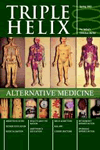Euthanasia is defined as 'the intentional killing by act or omission of a person whose life is felt not to be worth living'. Assisted suicide is euthanasia one step back. Few of us can see any morally significant difference, and although a BMA conference in 2000 was at one stage expected to recommend a change in law, BMA policy remains firmly against it.
Switzerland has allowed assisted suicide since 1918 provided it is motivated by altruistic considerations. The rest of us have rightly asked the question: how could we ever be sure of the motivation when the key witness, the person the police would most like to interview in order to confirm this, is dead? Switzerland ignores this question and interestingly, unlike the Netherlands, Belgium, and Oregon, has not required the involvement of health professionals. Any altruistically motivated person can help kill and the patient does not have to be terminally ill.
This curious state of affairs had passed virtually unnoticed until British lobby groups cynically upped the profile of the euthanasia debate. Fearing adverse publicity about 'suicide tourism' - numbers grew from three in 2000 to 55 in 2002 - the Swiss parliament has introduced a bill to end the tourism aspect but that cannot become law until end-2004. Disability groups in the UK have vehemently condemned the hopelessness conveyed by such TV coverage. Palliation of motor neurone disease is difficult, but we do not need to kill the patient in order to kill the symptoms, and we can bring hope.
Meanwhile Merseyside police are considering prosecution. I would leave Wyn Crew alone. Her distress was obvious: 'It's like taking him out to be shot at dawn'. But the other crew worries me more. Reality TV may rack up ratings but until they show medical killing in abortion, they should not show the prelude to medical killing in such a propaganda piece.
































